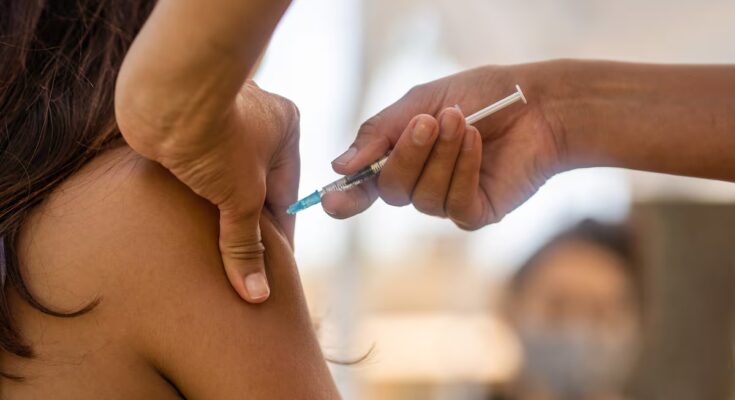The marked decline in vaccination levels in children and adolescents in Argentina has put health workers and medical associations on alert. Official data indicates that key vaccines, such as those that prevent polio, measles or diphtheria, among other diseases, have fallen to application rates below 50%, when just a few years ago they were above 90%. “The poor coverage of essential vaccines puts community protection at risk and favors the re-emergence of eradicated diseases,” warns the Argentine Society of Pediatrics (SAP).
The Argentine Ministry of Health has so far not commented on the decrease in immunization levels and, instead, highlighted the record of “significant improvements in critical doses in the first year of life”.
The most updated official data correspond to vaccines administered until 2024. The so-called triple viral vaccine, which fights measles, rubella and mumps, appears in the mandatory calendar for five-year-old children: in the period 2009-2019 coverage reached on average 90% of the target population, while last year it only reached 46.7%.
For children of the same age, access to the polio vaccine fell over the same period from an average of 90% to 47.6%. In the case of the vaccine against diphtheria, tetanus and whooping cough, the immunization rate dropped from 93% to just 46.4%.
The SAP, which brings together the country’s pediatric doctors, observes that the data are also worrying in other age groups: “Coverage of the human papillomavirus (HPV) vaccine in adolescents, essential for preventing genital cancers, has fallen to 55% in women and 51% in men”.
In some areas of the north of the country the yellow fever vaccine is administered. In the provinces of Misiones, Corrientes, Formosa and in the areas of Salta, Jujuy and Chaco, coverage was 30.3% last year. In 2022 it had been at 60.3%.
The vaccines which, according to official statistics, maintain a high coverage, above 80%, are those applied at birth and during the first year of life: they are those used to fight hepatitis B, tuberculosis, rotavirus and other diseases.
The risks associated with low vaccination rates have already begun to emerge. This year, Argentina has been hit by a measles epidemic with 35 confirmed cases. There is currently an ongoing coqueluche epidemic in the country with 516 confirmed cases and 5 children dying in Buenos Aires. Tuberculosis shows a sustained increase globally and in Argentina it has increased by 65% in the last five years: this year there have been 13,794 cases.
For various experts, the decline in immunization rates is linked to the proliferation of anti-vaccine discourses that have multiplied in the post-coronavirus pandemic.
An expression of the tenacity of these discourses will arrive next week in the Argentine Congress. “What do Covid-19 vaccines really contain?” is the title of a conference organized by MP María Inés Marilu Quiroz, member of PRO, the conservative party of former president Mauricio Macri, an ally of Javier Milei’s far right. Quiroz has publicly expressed himself “against compulsory and compulsive vaccination”. “I have to be free to do what I feel I have to do,” he said.
Seven scientific organizations have expressed their disappointment with the meeting, scheduled for Thursday 27th in the Chamber of Deputies. “The holding of events like the one mentioned in areas of the state does nothing but induce scientific denialism, which harms trust in vaccines”, reads the letter signed by the authorities of the Argentine societies of Medicine, Infectology, Pediatric Infectology, Paediatrics, Vaccinology and Epidemiology, Virology and Microbiology.
The letter warns that raising doubts about the value of vaccines “is extremely dangerous” when “alarming vaccination rates are recorded, both for Covid and for other diseases which, having been absolutely controlled after the introduction of vaccines, re-emerge as major health problems”.



